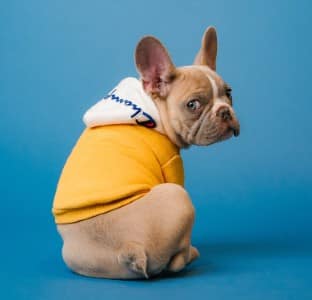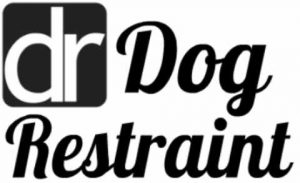We're an affiliate We hope you love the products we recommend! Just so you know, we may collect a share of sales or other compensation from the links on this page.
Contents
Why Is Your Puppy Peeing in the House After You Trained it and How Can You Fix the Problem?
If your puppy is peeing in the house after being trained, I understand your frustration. In this article, I go over why this may be happening and what you can do to correct this problem.
Trying to potty train a puppy is a long and arduous process that nobody really enjoys. Nonetheless, it is a vital part of welcoming and accepting a puppy into the family. Similar to potty training a child, house training a puppy is a journey that is riddled with accidents, troubles, and issues of all kinds. However, when you do manage to properly train your puppy, you will be happy knowing that you can leave to go grocery shopping and you won’t come back home to a nasty surprise.
Sometimes Puppies Can Regress:
Unfortunately, puppies sometimes go back on what they have learned and will begin peeing in the house even after they have seemingly learned and understood proper house training. When this happens, you might feel frustrated and angry but many people will also feel confused.
What would cause a puppy peeing in house after being trained? As long as you are sure that your puppy has completed its house training and is not just being stubborn, there’s probably a reason why this is happening with your puppy.
There are actually several causes as to why this could happen and each cause has its own set of solutions for you to look into. Thankfully, this is not an uncommon happening, which means that there will be many resources to help you figure out why this is happening to you and your puppy.
Peeing Due to Health Problems
Dogs, as with many other animals that cannot verbally communicate with people, have their own ways of letting people know that there is something wrong. For dogs, peeing in the house is not necessarily a method of communication but rather an indicator that there is something wrong.
Dogs are intelligent and relatively clean. This means that they do not want to pee in the house, especially when they have learned that peeing in the house is unacceptable. When a dog is peeing in the house, it might be because it physically cannot hold it in or something is wrong with its urinary tract. Before you start looking at potential behavioral issues, you should first rule out any health issues.
Going to the vet is the perfect way to rule out the possibility of a health issue causing your puppy to start urinating in the house. Surprisingly some dogs become incontinent at a relatively young age. While this is unfortunate, it is important to learn the cause of your dog’s inappropriate urination and put a stop to it.
This way you don’t have to deal with accidents in the house and your puppy doesn’t have to feel guilty for being a bad dog.
Once you have ruled out health problems, you should then start looking toward behavioral causes for your puppy’s urination.
Peeing in Response to Change or Stress
Some puppies might inappropriately pee as a response to changes in the house or life in general. If another dog in the house has passed away or if there is a new pet being introduced to the house, your dog might become stressed and begin to pee. If you have just moved out of a house, your dog might be incredibly stressed out, which could cause it to pee inappropriately.
While this is not okay, this is generally an easy problem to fix. Sometimes all you will need is time for your puppy to adjust to the change. If there are no signs of improvement with time, however, you might have to consider either retraining your puppy or taking it to a behavioralist to have it learn to manage stress better.
Peeing as a Way to Mark Territory
Puppies, as well as other animals, have a tendency to mark their territory with urine. Usually, the marked territory will smell and look a bit different than an actual accident where your puppy emptied its bladder. You may suspect marked territory for accidents.
Non the less marked territory is still bad since your puppy is peeing in the house after being trained. Urine for the purpose of marking territory has chemicals that tell other dogs that the area belongs to them. These chemicals have a strong enough smell that even humans can smell the difference.
Generally, the amount of urine that your dog leaves behind is also going to be significantly different than an actual accident. After all, your puppy doesn’t view marking territory with urine the same way as people do. Puppies and dogs don’t have a reason to completely empty their bladders when they are just sending a message by marking territory so the area affected is going to be much smaller.
Realizing that your dog is marking its territory is a good realization as it is easier to fix than other causes of inappropriate urination. Usually, dogs will mark their territory when they perceive someone trying to take it, such as another dog. If you have another dog in the house, consider finding a way to have your puppy learn that it shouldn’t mark territory. However, you should never harshly scold your puppy as this never yields good results. Instead, when you notice that an area has been marked, use an enzymatic cleaner to remove the mark and go about your day.
Figuring Out Why Your Puppy Is Peeing in the House
In order to best determine whether your puppy is peeing because of a medical or behavioral problem, you will need to see if there is a pattern to the urination. While it might not be fun to try and study when your dog pees and what the circumstances surrounding it are, it is an important part of teaching your puppy that peeing in the house isn’t okay.
First, you will want to see if there is any specific situation where you find your puppy peeing. For instance, if you realize that your puppy is only peeing during thunderstorms, you can probably assume that your puppy is really peeing out of fear. If your puppy only pees inappropriately when you leave the house, it might be due to separation anxiety.
When your puppy sneaks away to urinate in the same place, it might be to mark territory. If your puppy tries to hide the accidents, slinks away to pee, and appears guilty when you find the pee, it might be because your dog has a medical issue causing it to pee where it knows that it shouldn’t be peeing.
This is Key:
Determining what situations cause your dog to pee is key in figuring out why your puppy is peeing in the house despite being housetrained. Once you have figured out the cause of the peeing, you can then begin to start taking action to prevent it from happening again. For example, if your dog is peeing due to stress or fear, consider removing the stressor or having a professional teach your dog how to cope with the stressor.
If your dog is sick, you should take it to the vet to have the medical problem solved. If your dog is peeing to mark territory, you will need to figure out why your puppy feels the need to mark territory and then make sure that you fix that issue. Before you know it, you won’t have to worry about your puppy peeing in the house after being trained again as you can rest assured knowing that you have solved the problem and both you and your puppy are happy.
When in doubt go back to the basics
Sometimes you need to start over with training. Or at least a refresher course. Check out my article “How to potty train a dog in 3 days”
In conclusion, if your puppy starts peeing in the house after being trained, it’s important to stay calm and patient. Keep in mind that potty training is a process and accidents can happen. By revisiting the basics of potty training, managing your puppy’s environment, and addressing any underlying issues, you can help your puppy get back on track with potty training. With patience and consistency, your puppy will soon be fully potty trained and accidents will become a thing of the past.

